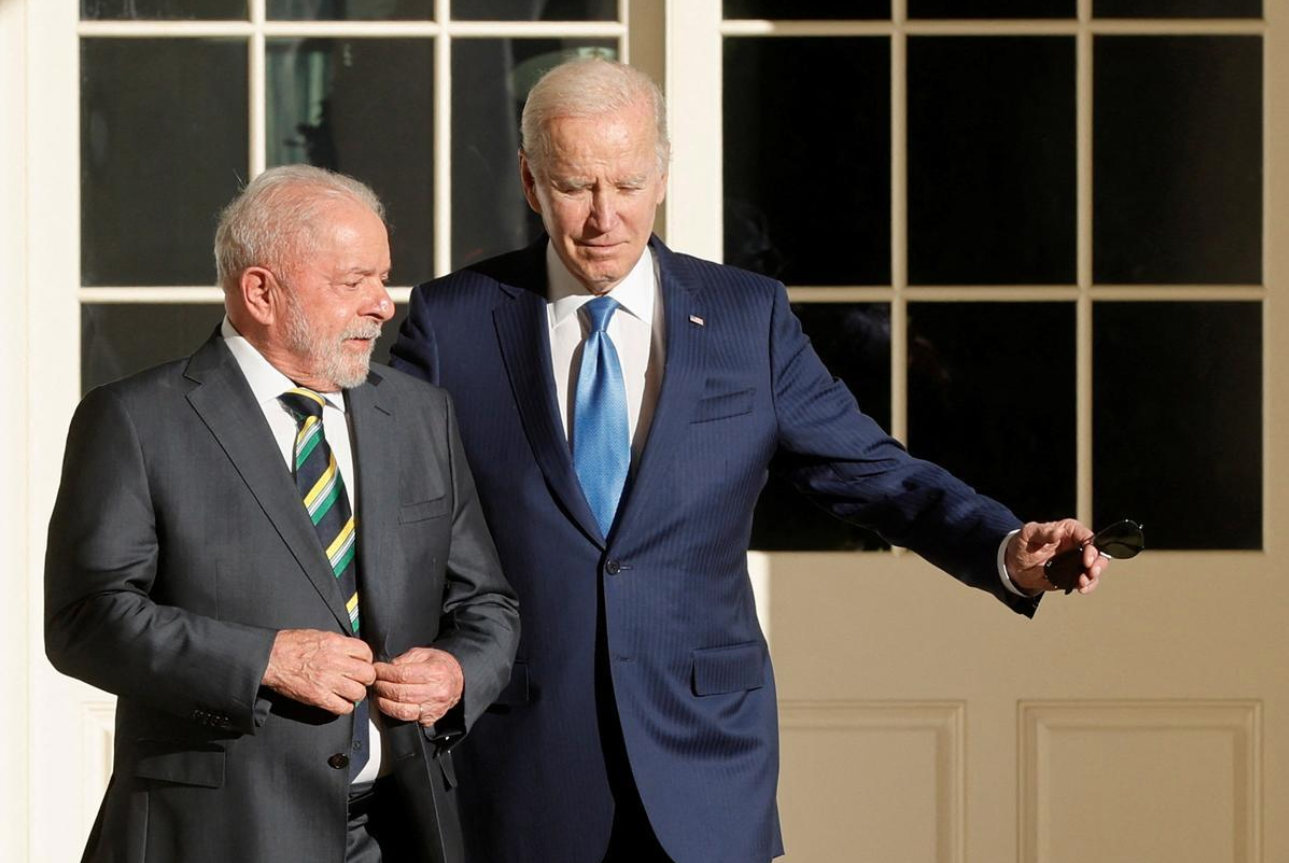The return of Luiz Inácio Lula da Silva to the presidency of Brazil has raised great expectations. However, international and domestic circumstances have changed with respect to his two previous terms. Lula himself seems different. Lula foreign policy performance has started with serious blunders about the war in Ukraine, where he now intends to offer himself as a peace mediator.
In 2002 and 2006, Lula enjoyed a very favorable situation.
After coming to power in 2003, Lula was able to benefit from a favorable international context. High international commodities prices guaranteed huge resources for his social and foreign policy. Other leaders in the region shared his vision of the world. Together, they formed a progressive front that provided hope to a continent in search of social and economic progress and a more leading international role. The relative withdrawal of the United States from the continent, together with the growth of China and other emerging powers, opened spaces for Latin America and its leaders.
At the national level, Lula won the electoral competition, with more than 60% of the votes in the 2002 and 2006 runoffs. In these elections, the Superior Electoral Court (TSE) obliged political parties with presidential candidates not to constitute coalitions with rival parties in the concomitant legislative and gubernatorial elections. This strengthened governance at the federal level. Lula had a clear and proactive mandate at the time: to strengthen the social agenda, fight poverty and inequality, and accompany the country towards a more central role on the global stage.
Lula himself and his Workers’ Party (PT) were presented as something new. Despite the fact that Lula was running for the presidency for the fourth time in 2002. He introduced himself as a champion of the people and the marginalized. At the same time, he spoke and acted with pragmatism in order not to alienate national and international sectors and to contribute to an image of moderation and credibility of the Government and the country.
In 2023, the scenarios are very different
The situation is different today. At the international level, the commodities’ prosperity has ended up limiting the possibility of social spending. The COVID-19 pandemic and the war in Ukraine are changing the political and economic course of the major powers. International alliances will be increasingly more strategic and less contingent. The space for international adventures will be restricted.
Latin America is deeply divided on economic issues, understanding of democracy, human rights, rule of law and development models. It is reasonable to wonder whether Latin America still constitutes a community of shared values. There will not easily be another progressive tide, despite the elections in Chile and Colombia and the future outcome in Argentina and Paraguay.
On the domestic front, Lula won the 2022 elections with less than 51% of the vote, has a majority of opposing governors in key states, and does not control Congress. The economic and social situation is difficult. Brazil had not yet recovered from the severe recession of 2015 and 2016, and the economy fell again in 2020 due to the pandemic. The attack on Congress, which occurred in January of this year, demonstrated the strength of the opposition beyond bolsonarism and that there is half of the country against lulism.
Lula himself has changed
Lula himself, at 77 years of age, seems to have less energy, which would be natural and understandable. His figure and political proposal are not something new, but a return to the past. Rather than a proactive agenda, the current Lula focuses on a controversial one. In 2003, when he took office for the first time, he tried to reassure skeptics and those who had not voted for him. In 2023, at his inauguration, he promised a government for 215 million Brazilians, but, at the same time, focused on criticizing the previous government. Lula harshly branded it as a “project of national destruction” and did so in a Congress where the majority are supporters of the former president, and the largest caucus is the bolsonarist one.
This may not be the most appropriate way to bring together and calm a polarized society. The government’s possible economic measures worry international investors, who fear exacerbated instability and notorious political turmoil. In addition, the scandals and the judicial experience with imprisonment have damaged Lula’s credibility in the eyes of a large part of the electorate. The political use of judicial power, in one sense or the other, does not help the country’s stability.
Questionable performance in the war in Ukraine
Lula has generated great expectations, especially in foreign policy. His supporters expect a relaunching of Latin American integration, a rebirth of the global south and a leading international role for Brazil. This will be complicated because conditions are not as they were in 2003 or 2007. The international agenda is oriented towards the war in Ukraine. Lula is trying to get involved in this conflict to relaunch Brazil’s international ambitions, but his performance so far and the background would invite being cautious.
As a candidate, in May 2022, he declared that Ukraine’s President Volodymyr Zelenskyy “was as responsible as Vladimir Putin for the war”. And he added that President Joe Biden and the European Union were equally to blame for not negotiating enough with Putin. This is a very ideological and wrong position. If you don’t want to, you can’t negotiate. But the Brazilian president, after a year of war and atrocities, commented: “If one doesn’t want to, two can’t fight”. This is not true. If there is an aggressor, two can fight, even if the victim does not want to. The president of a country that ranks 50 out of 195 countries in the world for intentional homicides and fourth for violent robberies, according to the United Nations Office on Drugs and Crime (UNODC), should know better.
With such statements as credentials, Lula now intends to be a peace mediator in Ukraine. His proposal would include India, China, and Indonesia to integrate a group of mediators and call for a cessation of hostilities. The proposal, like China’s, does not distinguish between aggressor and aggressed. Not surprisingly, Russia has reacted positively. However, a cessation of hostilities without concessions from Russia would be condoning Moscow’s aggression. It would also be worth recalling the failure of Brazil’s mediation attempt, together with Turkey in 2010, regarding Iran’s uranium enrichment. Getting into huge and high-profile issues without adequate status and backup can be counterproductive and affect consensus. In that adventurism, yes: Lula remains the same.
*Translated from Spanish by Camille Henry













